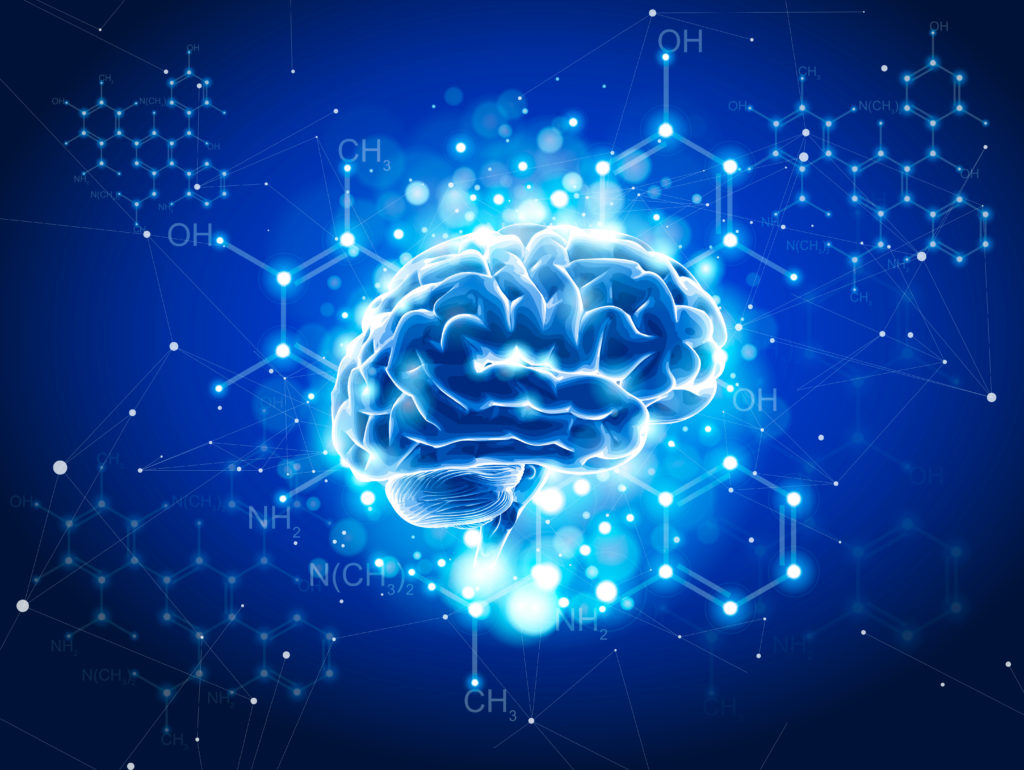Coping, Addiction, and Coping with Addiction
by Ray Kelaita
The study of addiction is a massive field. The number of people who suffer from addiction and have tried to personally dissect their internal struggle in order to make sense of it is vast. But the study of addiction is the study of the unobservable. Emotional stress, past trauma, as well as disorders, mental health issues, depression, anxiety, loneliness are all potential causes. But even when the origins of the disease take root can be a complex issue to observe. Does someone struggle with drugs and alcohol because of who they are now, or because of the way that past experiences have molded them? In this article, we’ll review how coping and addiction go hand-in-hand. Coping with addiction during recovery is what it’s all about.
First of all, addiction can be a symptom or a method of coping. If you or someone you know is struggling with drugs or alcohol, the odds are that it’s not something that’s a result from a bucolic, ideal life. Additionally, it’s not behavior that carries on through pleasant, comfortable days. Although it’s not impossible for someone who isn’t suffering some type of trauma to have a problem with drugs or alcohol, it’s much less likely.
Adverse Childhood Experiences
One way of determining trauma is finding your Adverse Childhood Experience or ACE score. The Adverse Childhood Experience score came from a study Kaiser Permanente did in the late 90s, as supported by SAMHSA. This ACE score measures ten different aspects of trauma which an individual may have suffered as a child. Five of these aspects are related to personal trauma and abuse. Then, the other five are about your family and home environment.
The ACE score measures physical abuse, verbal abuse, sexual abuse, physical neglect, and emotional neglect. It takes into account whether you grew up with a parent who was an alcoholic, a mother who was a victim of domestic violence, or if you had a family member in jail. Other immediate family details are noted, such as a family member diagnosed with a mental illness, or the disappearance of a parent through divorce, suicide, death, or abandonment.

According to the ACE model, as an individual’s score increases, so does their chance of a variety of diseases, as well as social and emotional struggles. With a high ACE score, the possibilities for chronic pulmonary lung disease increases by 390%, hepatitis by 240%, depression by 460%, and attempted suicide by a massive 1,220%. Higher Adverse Childhood Experiences scores correlate with a higher likelihood of alcoholism, being a victim or perpetrator of domestic abuse, liver disease, smoking, and even the possibility of being a rape victim.
Co-occurring Disorders: Dual Diagnosis
One view of addiction is that of the co-occurring disorder, also called Dual Diagnosis. A dual diagnosis is when there is someone with a diagnosed mental illness and a substance abuse disorder existing at the same time. Someone who has a psychological disorder is much more likely to develop issues with substance abuse. Mental disorders and addiction often share very similar causes and effects, both being physiological and social. Hence, this is one main reason drug and alcohol addictions now fall under the category of mental disorders. This brings people into a tricky area where their psychological issues and addiction continue feeding off each other. In this case, coping with addiction needs to happen along with coping through the mental illness present.
Much of the time, this model of addiction applies to people who have what many would consider legitimate or extreme diagnosable mental conditions. Such conditions can include bipolar disorder or schizophrenia. These people don’t have the ability to emotionally regulate or suffer from the anxiety of an unstable internal mind. Therefore, they can be prone to self-medicating. As someone who’s spent a decent amount of time in AA halls as well as drug and alcohol counseling, I can tell you that a number of people struggling with addiction at the same time as with bipolar disorder are extremely high.
One of the most common co-occurring disorders among addicts is PTSD and residual childhood trauma. According to the Foundation Recovery Network, two out of three addicts have experienced some form of childhood trauma.
Coping with Addiction as a Way to Cope with Trauma
Some experts disagree with viewing addiction as a disease and a disease alone. Although addiction shares many aspects of a disease, certain professionals view addiction not as the condition itself but as the underlying symptom of the person’s struggle with trauma.
The American Psychiatric Association (APA)’s definition of trauma is defined as posttraumatic stress disorder and states that a person must have experienced or witnessed an event or events that involved actual or threatened death or serious injury, or a threat to the physical integrity of self or others, and which involved fear, helplessness, or horror. According to this definition, nearly everyone has experienced some form of trauma. From physical and sexual abuse, deaths of loved ones, to losing a job, it’s a shattered world and trauma lurks around every corner.

Experts Redefining the Perspectives of Coping with Addiction
In his book In the Realm of Hungry Ghosts: Close Encounters with Addiction, Canadian physician Dr. Gabor Maté claims that
A hurt is at the center of all addictive behaviors. It is present in the gambler, the Internet addict, the compulsive shopper, and the workaholic.
According to him, not all hurts are equal. Some underlying pain resides beneath all addiction, even if it isn’t explicitly related to trauma or abuse. Childhood trauma leads to a lack of development when fundamental emotional and physical needs face neglect. As the body matures, so does the brain. Not only are new connections made intellectually as the thoughts and reasoning abilities of people become more complex as they age, but the structure and chemical content of the brain goes through its own evolutions.
When exposed to these adverse and traumatic situations during that process of growth, the brain develops with impaired reward circuitry. This means that the neurological centers which release dopamine to incentivize and motivate don’t get the support to develop normally. The ability to derive satisfaction and get fulfillment from things in a normal capacity is damaged. Incentive and motivation can then become misguided or even lost.
Therefore, coping with addiction is affected dramatically. The effects of trauma are felt on two fronts. There is the emotional side, where people are emotionally damaged and scarred by these adverse experiences. Then there is the physiological side, where the actual structure and chemistry of the brain is morphed. The reason that trauma during childhood is more serious and severe is that of the way that it becomes integrated into the development of both the emotional and the physical self as it develops.

Coping with Addiction at its Worst
In many cases, this is where chemical self-medication comes into play. Faced with anxiety, depression, shame, and fear– and without the benefits of a healthy brain chemistry to process, incentivize, and motivate– turning to drugs and alcohol makes a lot of sense to any given addict. With a lack of learned coping skills and neurological structure to easily heal, self-medication is extremely common amongst people with trauma.
Drugs and alcohol are physically addictive in the sense that once the body becomes accustomed to the substances, it tends to want to keep them in the system. Tolerance is another name for this occurrence. But up until the point that drugs and alcohol infiltrate the bloodstream and the brain, they have no control over a person.
Coping with Addiction on the Road to Sobriety
When people look at addiction, they look at the endpoint of a long journey. The decisions which lead most addicts to use are attempts to cope with emotional and physical discomfort. Up until the point of substance addiction, these decisions may seem harmless. Maybe no other options were present, maybe no other options made sense, or maybe nothing else worked. However, in either case, addiction is an attempt to cope with some sort of hurt or trauma in the self.
Contrarily, addiction isn’t just a “shutting off” of the self. Drug or alcohol dependency sure doesn’t make life easier. Whatever unhealed hurt a person is trying to relieve with self-directed chemical treatment is just being ignored and pushed down the road. Addiction is a temporary band-aid fix, with varying degrees of negative consequences as a result. Subsequently, the addiction in itself acts as a trauma.
So now that a chemical dependency has been added to the list of problems, the person’s coping skills are more important than ever. Not only does the individual have to deal with the trauma of the past. Now they need to contend with the pull of drugs and alcohol. Then, usually, he or she must cope with the triggers of relapse and emotional struggles of sobriety. Sobriety isn’t just “not being under the influence”. Sobriety also entails building up the ability to process past trauma and cope with triggers for relapse.
Coping with Addiction: Programs, Rehabs, Support Groups
There is a reason why structured programs, rehab facilities, and long-term support groups are so much more effective in establishing sobriety. Coping with the help from supportive sober peers is far more successful than an attempt by a solitary individual. A distrust of authority and a difficulty developing relationships with peers are core aspects of many addicts. The loner mentality that comes from developing with childhood trauma and anxiety are also common. Professional recovery programs can help give the support to someone struggling with a mess of internal trauma and help them in developing their coping skills by giving them a place to feel safe with their problems. With help and support in achieving and maintaining sobriety, these underlying issues of trauma and coping can be worked through and eventually overcome.
If you suffer from an addiction, don’t just think about pursuing sobriety to be sober. The only way to achieve a lasting sobriety is to take a deeper introspective look into yourself. To reach out to others for help and support, and identify the hurts within yourself.

If you still have questions about coping with addiction, Prevail Intervention has the resources to help you. Call our free addiction and mental health Helpline. We have caring professionals who are willing to talk to you about your specific situation and offer help. We can find you a rehab, support group, or intervention for you or your loved one. Recovery from drug and alcohol addiction is possible if you choose to put in the work and find the consistent support of others.
Related Resources
Intervention Help for Families
Everything You Need to Know About a Sober Recovery
Drug Rehab Centers
What is a Dual Diagnosis?
California Drug Intervention
Why You Need a Recovery Mindset for Rehab & Successful Sobriety
Sources
Exploring the Role of Child Abuse in Later Drug Use
Emotional Trauma: An Often Overlooked Root of Addiction
Innovative Treatment Helps Traumatized Drug-Abusing Women
Understanding the Effects of Maltreatment on Brain Development
